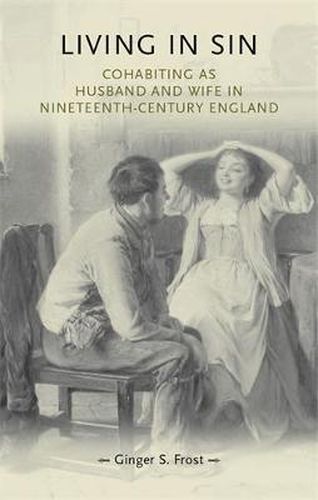Readings Newsletter
Become a Readings Member to make your shopping experience even easier.
Sign in or sign up for free!
You’re not far away from qualifying for FREE standard shipping within Australia
You’ve qualified for FREE standard shipping within Australia
The cart is loading…






Living in Sin is the first book-length study of cohabitation in nineteenth-century England, based on research into the lives of hundreds of couples. ‘Common-law’ marriages did not have any legal basis, so the Victorian courts had to wrestle with unions that resembled marriage in every way, yet did not meet its most basic requirements. Unsurprisingly, the courts reacted with ambiguity, upholding cohabitation in some instances and punishing it in others. By challenging the definition of marriage through their actions, couples reformed the state’s dealings with it, influencing judges to lenient sentences and legislators to reform the laws. Nevertheless, cohabitees never had legal status and this had serious repercussions for women and children. The majority of those who lived in irregular unions did so because they could not marry legally. Others, though, chose not to marry, either from indifference, class differences, of because they dissented fro marriage for philosophical reasons.This book looks at each motivation in turn, highlighting class, gender and generational differences, as well as the reactions of wider kin and community. Cohabitation was not the same as marriage, but many family and friends accepted at least women irregular unions, most readily in the working classes. All the same, the sexual double standard meant that women suffered more than men from the disadvantages of ‘free unions’. Frost shows how these couples slowly widened the definition of legal marriage, preparing the way for the more substantial changes of the twentieth century, making this a valuable resource for all those interested in Gender and Social History.
$9.00 standard shipping within Australia
FREE standard shipping within Australia for orders over $100.00
Express & International shipping calculated at checkout
Living in Sin is the first book-length study of cohabitation in nineteenth-century England, based on research into the lives of hundreds of couples. ‘Common-law’ marriages did not have any legal basis, so the Victorian courts had to wrestle with unions that resembled marriage in every way, yet did not meet its most basic requirements. Unsurprisingly, the courts reacted with ambiguity, upholding cohabitation in some instances and punishing it in others. By challenging the definition of marriage through their actions, couples reformed the state’s dealings with it, influencing judges to lenient sentences and legislators to reform the laws. Nevertheless, cohabitees never had legal status and this had serious repercussions for women and children. The majority of those who lived in irregular unions did so because they could not marry legally. Others, though, chose not to marry, either from indifference, class differences, of because they dissented fro marriage for philosophical reasons.This book looks at each motivation in turn, highlighting class, gender and generational differences, as well as the reactions of wider kin and community. Cohabitation was not the same as marriage, but many family and friends accepted at least women irregular unions, most readily in the working classes. All the same, the sexual double standard meant that women suffered more than men from the disadvantages of ‘free unions’. Frost shows how these couples slowly widened the definition of legal marriage, preparing the way for the more substantial changes of the twentieth century, making this a valuable resource for all those interested in Gender and Social History.